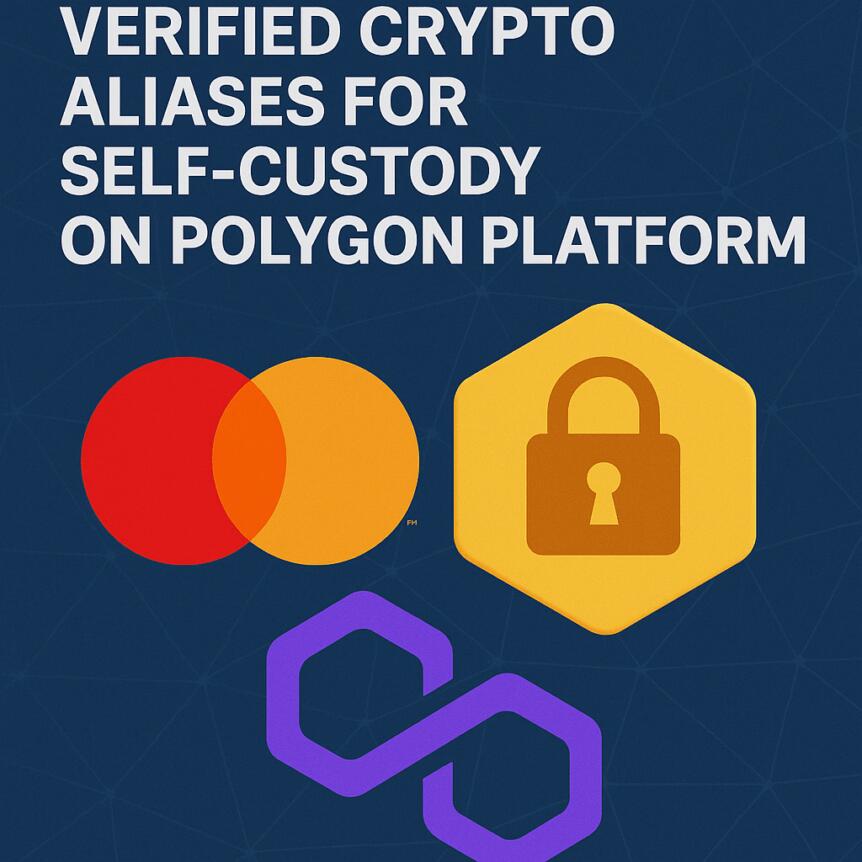Mastercard is pushing deeper into blockchain and digital asset innovation with an expansion of its Crypto Credential program, this time bringing verified, username-based aliases to self-custody wallets. The move aims to simplify how users send and receive cryptocurrencies like Bitcoin, Ethereum, and stablecoins by replacing complex wallet strings with human-readable identifiers. The rollout, initially supported on the Polygon blockchain, reflects the rising demand for safer, more intuitive crypto transfers that retain full wallet sovereignty.
- Mastercard is extending its Crypto Credential program to self-custody wallets to improve the usability of crypto transactions.
- Polygon is the first blockchain to support the alias system, with Mercuryo providing identity verification.
- Users can link a verified alias or request a soulbound token proving wallet authenticity.
- The initiative aims to make crypto payments more familiar and reduce errors caused by long wallet addresses.
- Mastercard continues to deepen its presence in cryptocurrency, blockchain payments, and Web3 partnerships.
Mastercard is expanding its Crypto Credential program to self-custody wallets, allowing users to send and receive cryptocurrencies using verified, username-style aliases instead of long wallet addresses.
Polygon will be the first blockchain to support the rollout, while payments firm Mercuryo will handle identity verification and issue the aliases to users, according to a Tuesday press release.
“By streamlining wallet addresses and adding meaningful verification, Mastercard Crypto Credential is building trust in digital token transfers,” said Raj Dhamodharan, executive vice president of blockchain and digital assets at Mastercard.
Once verified by Mercuryo, users can link a human-readable alias to their self-custody wallet or request a soulbound token on Polygon that proves the wallet belongs to a verified individual.
Mastercard aims to make self-custody crypto transfers safer
Mastercard said the initiative is designed to reduce mistakes from copying long hexadecimal wallet strings and to bring crypto payments closer to the ease of traditional financial systems.
“This partnership marks the moment when self-custody becomes simple,” said Marc Boiron, CEO of Polygon Labs.
Mercuryo, the first issuer for the program, said the rollout reflects rising demand for secure but user-friendly crypto experiences that don’t require giving up wallet sovereignty.
Mastercard has been accelerating its crypto and blockchain strategy throughout 2024 and 2025, launching debit cards with Kraken across Europe and partnering with MetaMask on a self-custody payments card.
Mastercard taps Chainlink to bring onchain crypto purchases
In June, Mastercard partnered with Chainlink to allow its three billion cardholders to purchase cryptocurrency directly onchain, marking one of the company’s most significant steps into Web3 and decentralized finance.
The rollout involves several Web3 partners, including Shift4 Payments, Swapper Finance, XSwap and ZeroHash. ZeroHash is supplying onchain liquidity to convert fiat into crypto, while Chainlink said the version available through Swapper Finance is fully non-custodial and uses account abstraction to make onchain purchases feel familiar to mainstream users.







